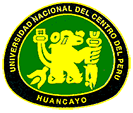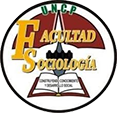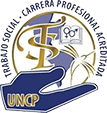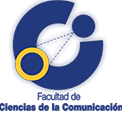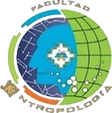The success of publishing is based on honesty
DOI:
https://doi.org/10.26490/uncp.sl.2019.3.1.524Keywords:
authorship, honesty, to publish, plagiarism and own productionAbstract
This article arises from the need we have, as students and professionals, of writing different types of documents –such as essays, articles, thesis, monographs, the systematizing of professional practice, plays and audiovisual production, among others– in a reliable way so that they could be published. This research aims that students and teachers produce reliable writings that could be published in different media, without committing plagiarism; it also seeks informing about the importance of correct quotation in order to turn it into a habit for the production of reliable documents in the Corporación Universitaria Minuto de Dios (UNIMINUTO), since many research works do not even apply for their publication in other media, as magazines or books, because they lack bibliographic citations. In addition, by ensuring an awareness of this problematic, there would avoid possible legal sanctions which could damage both student’s and teacher’s résumé.
DOI: https://doi.org/10.31876/sl.v2i1.35
References
Soto, A. (2012). El plagio y su impacto a nivel académico y profesional. E-Ciencias de la Información¸ 2(1). Recuperado de https://revistas.ucr.ac.cr/index.php/eciencias/article/view/1213
Amador, A. (2010). Incluyen plagio como falta muy grave en la UCR. Boletín Electrónico Enlaces, 38. Recuperado de http://boletin.cu.ucr.ac.cr/notas/38-2010/plen06-3810.html
Rodríguez Quispe, N. y Sánchez Baya, M. (2011). Plagio, una falta de ética. Rev Cient Cienc Méd, 14(2), 6-7. Recuperado de http://www.scielo.org.bo/scielo.php?script=sci_arttext&pid=S1817-74332011000200002&lng=es&nrm=iso
Calvo Sánchez, D. (23 de junio de 2015). Principios y valores éticos esenciales en investigación [video]. Recuperado de https://www.youtube.com/watch?v=w8jZXf5ne_g
Escámez, J. (1988). El marco teórico de las actitudes: I. El modelo de Fishbein y Ajzen. En J. Escámez y P. Ortega, La enseñanza de actitudes y valores (pp. 29-50). Valencia: Nau Llibres.
Schlosser Montes, K. (2014). La Percepción del plagio académico de los estudiantes y docentes de las facultades de arquitectura, derecho e ingeniería en la Universidad Rafael Landívar.”. En la tesis (p 26). Guatemala de la Asunción.
Sureda, J., Comas, R., y Morey, M. (2009). Las causas del plagio académico entre el alumno universitario según el profesorado. Revista Iberoamericana de Educación, 50, 197-220.
Sanabria, L. (2014). Artículo especial: conceptualización jurídica del plagio en Colombia. Rev Colomb Cir. P. 1-10 Rev Colomb Cir. 2014;29:88-97
Hirsch Adler, A. (2005). Construcción de una escala de actitudes sobre ética profesional. Revista electrónica de investigación educativa. REDIE vol. 7 n.1 mayo pp.01-14. Versión on-line ISSN 1607-4041 http://www.scielo.org.mx/scielo.php?script=sci_arttext&pid=S1607-40412005000100006
Carpi Ballester, A. Breva Asensio, A. (1997). La predicción de la conducta a través de los constructores que integran la teoría de acción planeada. Revista electrónica de motivación y emoción. Volumen 4 n. 7. ISSN 1138-492X.
Coll, C. y Solé, I. (2002). Enseñar y aprender en el contexto del aula. En C. Coll, J. Palacios y A. Marchesi (Comps.), Desarrollo psicológico y educación 2. Psicología de la educación escolar (pp.357–386). Madrid: Alianza.



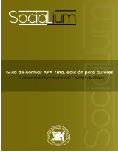




.jpg)










